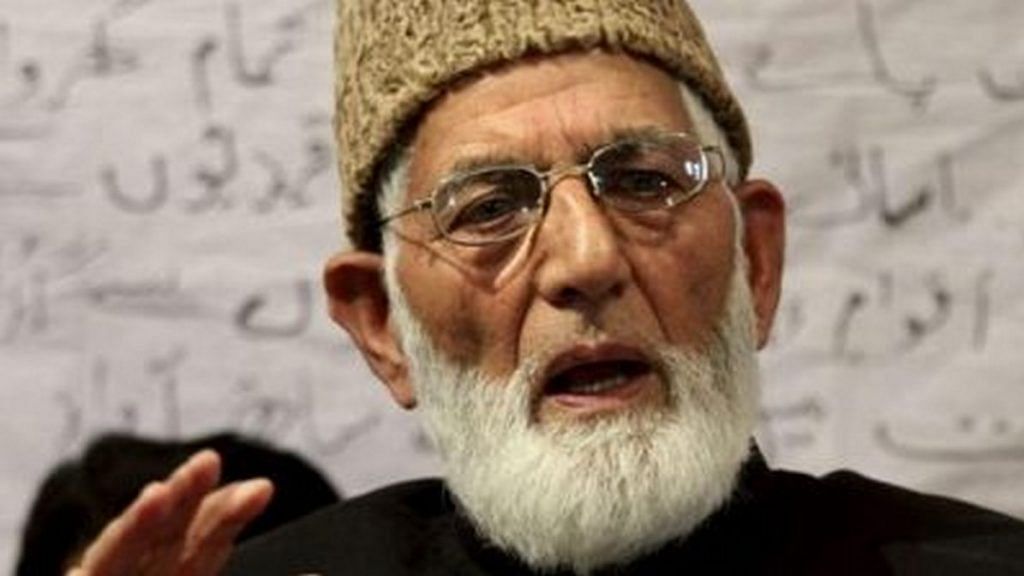Srinagar: Senior separatist leader of Jammu and Kashmir, Syed Ali Shah Geelani, Monday announced his resignation from his faction of the All Party Hurriyat Conference.
“In view of the current state of the Hurriyat Conference, I am announcing my complete dissociation from the forum,” Geelani said in an audio message released Monday morning. “In this context I have already sent a detailed letter to all constituents of the forum.”
In his letter, Geelani has accused the Pakistan-based separatist leadership of nepotism and political corruption. He also accused the Pakistan-based separatists of misinterpreting his speeches and taking decisions arbitrarily without keeping him in the loop.
Geelani has also criticised the Modi government’s 5 August decision to scrap Articles 370 and 35A, describing the move as a plan to convert Kashmir into another Palestine. He slammed the separatists of his faction for failing to react to the post 5 August scenario.
Government officials said that Geelani’s resignation is a significant development that can have both positive and negative ramifications. The resignation can be seen as an example of the Hurriyat’s weakening stature but it could also open up opportunities to the new leadership that might, in order to prove itself worthy, be more aggressive than what the Hurriyat has been in the past couple of years.
Also read: J&K Police arrests slain militant’s mother for posing with gun, ‘recruiting men for terror’
The two Hurriyat factions
The All Party Hurriyat Conference is split into two factions — one that was being led by Geelani and the other by Mirwaiz Umar Farooq.
The 2003 rift had unequally divided the outfit, which until then had over two dozen constituents. The faction headed by Geelani is considered to be the more prominent and has some 16 constituents. Some of the most prominent faces in J&K are part of the Geelani faction, including incarcerated leaders such as Shabir Shah, Masarat Alam and Qasim Faktoo.
Geelani had around that time also formed the Tehreek-e-Hurriyat, after exiting the Jammat-e-Islami, and headed the outfit until 2018 when he was replaced as the TeH chairman by Ashraf Sehrai, a long-time compatriot.
Geelani’s Tehreek-e-Hurriyat had led his Hurriyat faction for nearly two decades.
In 2018, Sehrai’s son, who joined the Hizbul Mujahideen a few days after his father took over as the chairman of Tehreek-e-Hurriyat, was killed in a gun battle in Srinagar last month.
While at the moment it is not clear whether the current Tehreek-e-Hurriyat chairman, Sehrai, will take over the Geelani faction of Hurriyat, the power vacuum created by the exit will be too large to fill by any existing separatist leaders as Geelani’s sway remains unparalleled in the separatist ecosystem. Probables to take over from Geelani, a Kashmir-based expert said, include Masarat Alam, who is also the chairman of the Jammu Kashmir Muslim League.
There were also fissures in the Tehreek-e-Hurriyat, which increased after Sehrai took charge as Geelani continued to be chairman of his Hurriyat faction.
“There is a slight chance that the APHC chairmanship might be filled up by individuals based in Pakistan,” the expert said, wishing anonymity.
Also read: An IAS officer’s viral ‘domicile certificate’ triggers fear of demographic change in J&K
